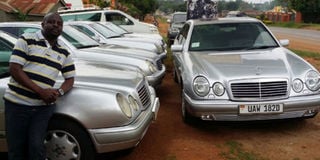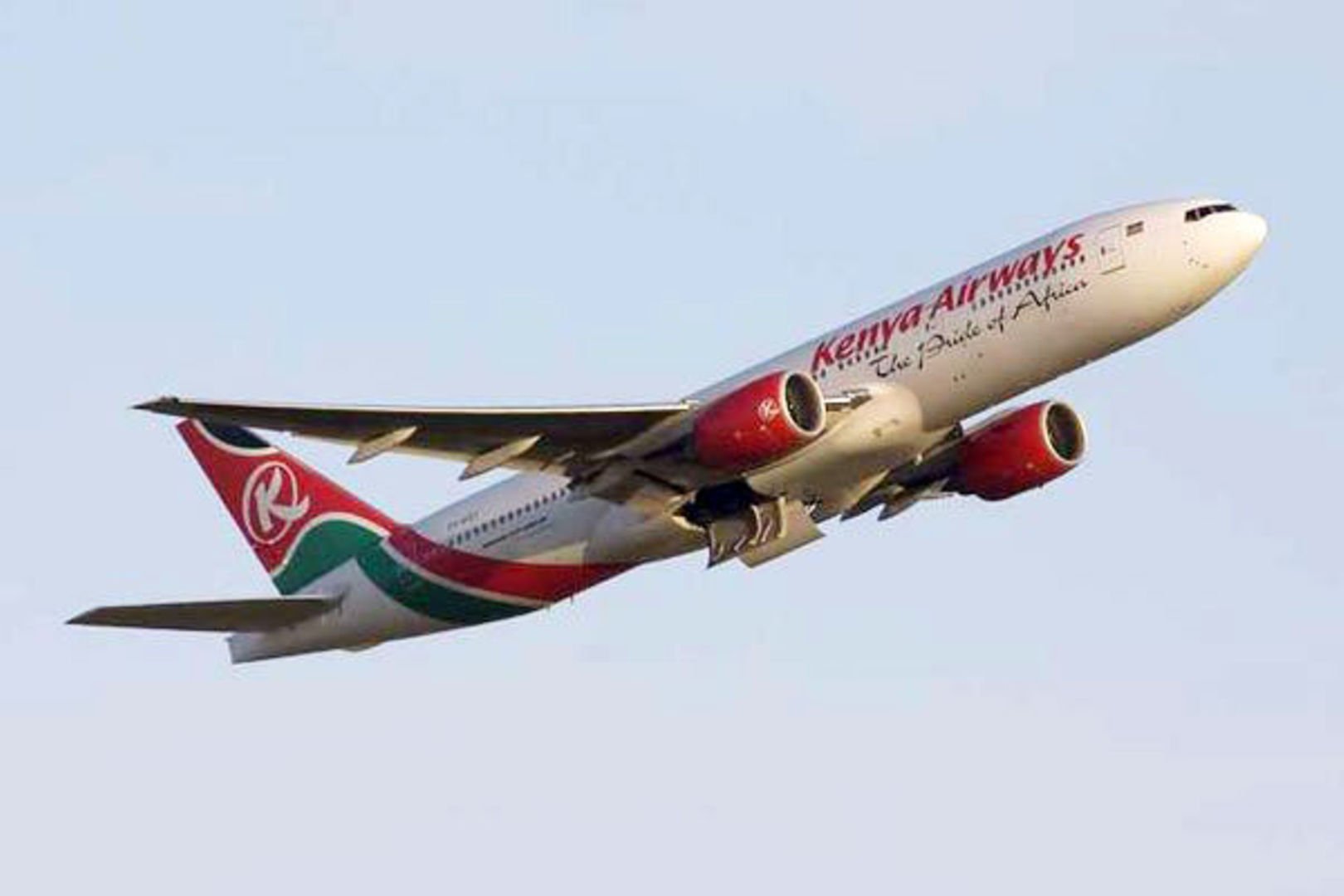From rowing boats to driving the Mercedes

Benson Gitta poses with some of his cars in Kitala on Entebbe Road. Courtesy Photo.
What you need to know:
Some say the love of money is the root of evil. Not so for Benson Gitta, proprietor of Billy Gee Enterprises and president of rally fans in Uganda. He spoke to Gillian Nantume about his business journey.
It is late afternoon when we finally sit down for this interview.
Benson Gitta is a slight man, who absolutely refuses to say a word in English. Outwardly, there is nothing unique about him until you see his cars. Six Benzes parked under the Heineken billboard in Kitala on Entebbe Road. In his business [bridal transportation], impression is everything.
How he started
“When the Anti-Counterfeit Bill was proposed in 2010, everyone thought Chinese mobile phones were fake,” he says. “At the time, I was operating a mobile phone shop.
I had to think fast. I lost more than Shs50m by selling the phones cheaply so as to get rid of them.”
This mishap left a bitter taste in his mouth when the law was shelved. He had undercut himself and was forced to close shop.
At the time, he was driving a Benz and when a friend approached him to transport a bridal party, he never looked back. “We pooled our cars every weekend, charging between Shs200,000 and Shs150,000 per Benz for Kampala and Entebbe, respectively.”
Going solo
The money was good but they were sharing it and yet Gitta’s mission in life is to make as much money as he can. “After one year, I opened my own company, using Shs80 million from my savings to buy four more Benzes and employed my wife and daughter as drivers. I drive the bride, she drives the groom and my daughter drives the entourage.”
With eight cars now, he charges between Shs200,000 to Shs300,000 around Entebbe and Kampala for each car.
Such has been the success that he bought a mobile disco to cater for the music at his client’s weddings. “We are building a hotel and the gardens will start hosting receptions in July.”
Challenges
“The traffic on Entebbe Road is terrible on the weekends. It can take you three hours to reach the reception venue. Traffic police should consider giving bridal cars right-of-way,” he complains, as he talks of some of the challenges he meets in his job.
On the myth that a Benz is an expensive car to maintain, Gitta says the only challenge is finding spare parts, which are expensive.
“Every weekend, people get married, so the market is large. Provide good services and buy good cars so that you do not spend a lot on maintenance.”
Gitta spends his free time at the beach or attending rally sprints. He admires the humility of Brig Muhoozi Kainerugaba and businessman Charlie Lubega.
The journey before the journey
Life has not always been smooth. Born in a poor family in 1974 to Ephraim Kajumbi and Ladigonda Nakyinda of Nalugala, Kitala in Wakiso District, the businessman says: “I admired the rich men in our village and I dreamt of being like them.”
And what a crazy dream! The late Kajumbi was a tailor on a shop verandah in Entebbe Town. Eight years after Gitta was born, he separated with his wife.
“I lived with my father and nine siblings for a month and then one day, after a heavy downpour, our house brought down.”
His mother had built a house in the village so he joined her, going to school for a year until she remarried and moved to another village.
Left alone, Gitta had to fend for himself. The desire to continue with school and the fear of hunger drove him to work even harder.
“At Nalugala Landing Site, I joined a group of fishermen and we would go out at 3am to fish, yet I had to be at school by 9am. With time, I reasoned that if I stayed in school, I wouldn’t be able to work.”
So fishing it was. Until the National Resistance Army rebellion beckoned, enlisting him as a spy at Katabi charged with scouting for food for the rebels.
Small beginning
By 1986, the political unrest had enforced a commodity shortage in the country. He turned to magendo (black market).
“Together with other fishmongers, I rowed boats loaded with cooking oil, flour, and petrol from Kisumu to Port Bell every night.”
Gitta saved every penny and when the magendo went bust, he remained on the lake with his boats, ferrying soldiers to Kabirango Island in Ssesse for training.
Life on the lake began to pall. In 1997, he came back to Kampala, bought stock and set up a mobile phone shop at Kasenyi Landing Site. “I understood the fisherman’s way of life because I lived among them for years.”
No one had a phone in the area. So he priced everything highly and waited. And sure enough, they came calling.
“The more expensive it is, the more likely a fisherman is to buy it. I only had to convince them that Jajja Mukasa (a god that they believed in) was okay with mobile phones.”
The rest is history. Gitta built a house, bought his first car, an Isuzu Gemini and began importing the phones directly from China.




